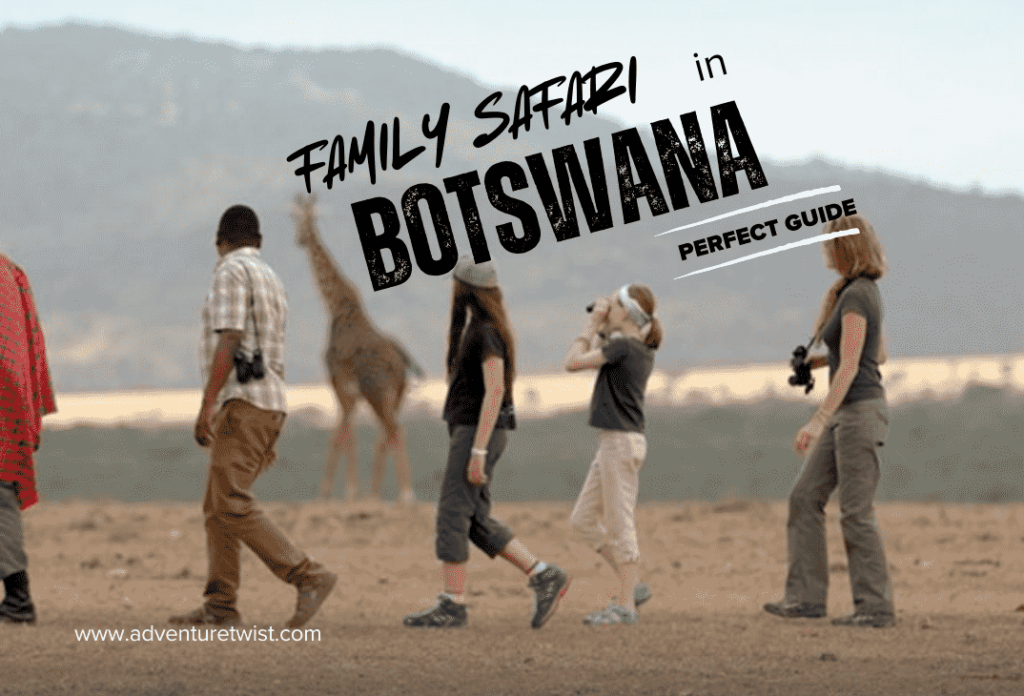
Visiting any of the Africa Safari via solo trip or Family trip can be a good way to retain memories from your vacation. While Family Safari in Botswana is great for families, it is recommended that you visit when your children are a bit older from age 8 and above. This will allow them to participate in activities such as walking safaris, game drives and mokoro excursions.
Kids love the outdoors and being “wowed” by what is around them. They have a natural appreciation for animals and wildlife and getting them close to nature is sometimes the very best education.
If you’re looking for the kind of holiday that your children won’t stop talking about long after it’s over, then you’ve got to visit this child-friendly paradise. Adults are not exempt from the loads of fun which Family Botswana Safari packs.
Why Choose Botswana for a Family Safari?
Tents you will find in Botswana Family Safari are designed with families in mind and provide comfort along with a touch of the wild. They are roomier and have several sleeping sections, ensuring parents and children can sleep separately but under one roof. The tents are fitted with modern features like dual vanities, indoor showers, comfy beds and flexible rooming options.
Botswana as a very safe and politically stable country allows visitors to travel on an organized trip and stay in lodges and camps without any worries for their safety. All the visitor needs to do is to adhere to the safari guide’s instructions and the government’s travel advisory. The family tents you will find are built with security in mind, providing a protected place in a wild setting.
The Tsodilo site features over 4,500 rock paintings. On this site is the Female Hill which contains beautiful rock paintings, including the Rhino Cave with the famous rhino painting. Visitors will equally be thrilled by the Central Kalahari Game Reserve offers an extraordinary landscape of vast desert plains and sand dunes which during the wet season blooms with green vegetation
Also, Botswana safaris have proven to provide a fantastic refuge for endangered animals. It is one of only seven countries in Africa with more than 1000 lions. In February 2014, Botswana was one of four African nations to pledge to honour a 10-year moratorium on the trade of ivory, meaning that they won’t sell any of their ivory stocks on the open market.
Best Time to Visit Botswana for a Family Safari
Botswana’s climate is moderate. It has three distinct seasons, although these are broadly categorized into the dry season spanning May to October and the wet season, which runs from November to April. The low season offers lower rates and discounts, although certain areas may be more challenging to access due to rain. This time of year is best for budget-conscious families yet offers rewarding wildlife sightings.
The rainy season comes with warm temperatures and occasional thunderstorms. This time of the year, you will also experience high levels of humidity. April through July are dry with some sunny days, but it does not get overwhelmingly hot. It gets cool at night with temperatures dropping.
In June and July, it can get very cold, as this is the beginning of winter. The weather warms up from August to October, with temperatures reaching 40 degrees Celsius in October. The rains usually stop in November. This is known as the green season. because offers lush greenery.
It can be very rewarding to travel in the green season between November and March. There are many wildlife species that give birth during this time, and you can expect to see exceptional birdlife. These, combined with lush green scenery, provide plenty of photo opportunities.
RECOMMENDED: The Best month to go on an African Safari
Destinations to Explore on a Family Botswana Safari
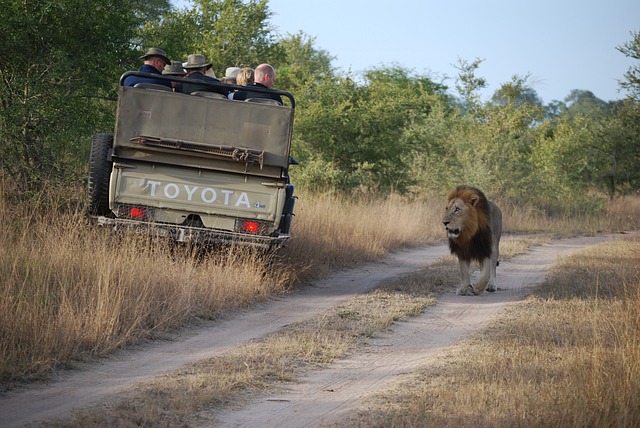
Okavango Delta
Spanning some 16,000sq km, the Okavango Delta brims with the African bush elephant, hunting dogs, hyenas, the hippopotamus, the blue wildebeest, the giraffe, the Nile crocodile, and the rhinoceros (black and white), buffalo, lions, and antelope. This birding paradise also has over 500 species of birds, including the African Fish Eagle, the Pel’s fishing owl, the crested crane, the ostrich, and the sacred ibis.
This UNESCO World Heritage Site is a network of channels, lagoons, and islands, making it a paradise for birdwatching, boat safaris, and game viewing. Families can explore the Okavango Delta by traditional mokoro (dugout canoe), a thrilling way to observe animals from the water and engage children in an immersive wilderness experience.
Chobe National Park
Chobe National Park, known as “The Land of Giants” harbors the biggest wildlife concentration on the entire African continent. The Chobe National Park elephant tours are a common feature here as the population of the big mammals is estimated at 50,000 with over 450 bird species. Its extensive savannahs and rolling greenlands cover the Savuti Marsh area, which is inhabited by zebras, wildebeests, antelopes, lions, hyenas, and elephants.
Moremi Game Reserve
This Reserve comprises swamps, islands, forests and dry land. On the floodplains, you’ll see a stunning array of wildlife: antelopes, lions, lots of elephants, African hunting dogs and even leopards. Moremi Reserve is famous for its diverse wildlife, including endangered African wild dogs, giraffes, and a high density of predators like lions and hyenas.
Central Kalahari Game Reserve
The Kalahari’s stark beauty and lesser-known wildlife make it an appealing option for families looking to venture off the beaten path. It is suited for families looking for a remote and unique Safari and attracts migratory animals, including zebras, springbok, and wildebeests. This reserve is within the Kalahari Desert which parades the Tsodilo Hills. The landmark comprises three hills: the Male, the Female, and the Child Hill. You can reach the top by the following walking trails: the rhino, the lion, and the cliff. Male Hill is the highest at 4,593 feet (1,400 m).
Makgadikgadi Pans National Park
The Makgadikgadi Salt Pans cover an area larger than Switzerland, making it one of the biggest salt flats in the world, and changes drastically between the wet and dry seasons. During the wet season, from April to November, between 35,000 to 75,000 Antelope, Zebra and Wildebeest migrate into the area. This is also the period when flamingos and other migratory birds flock to the pans. Families can enjoy quad-biking across the pans or walking with San Bushmen to learn about survival skills and Indigenous culture. An abundance of stone tools and artefacts between 2,000 to 5000 years old can be found scattered amongst the salty fissures painting a tale of a time when water was more plentiful in the area.
Family-Friendly Accommodation Options in Botswana
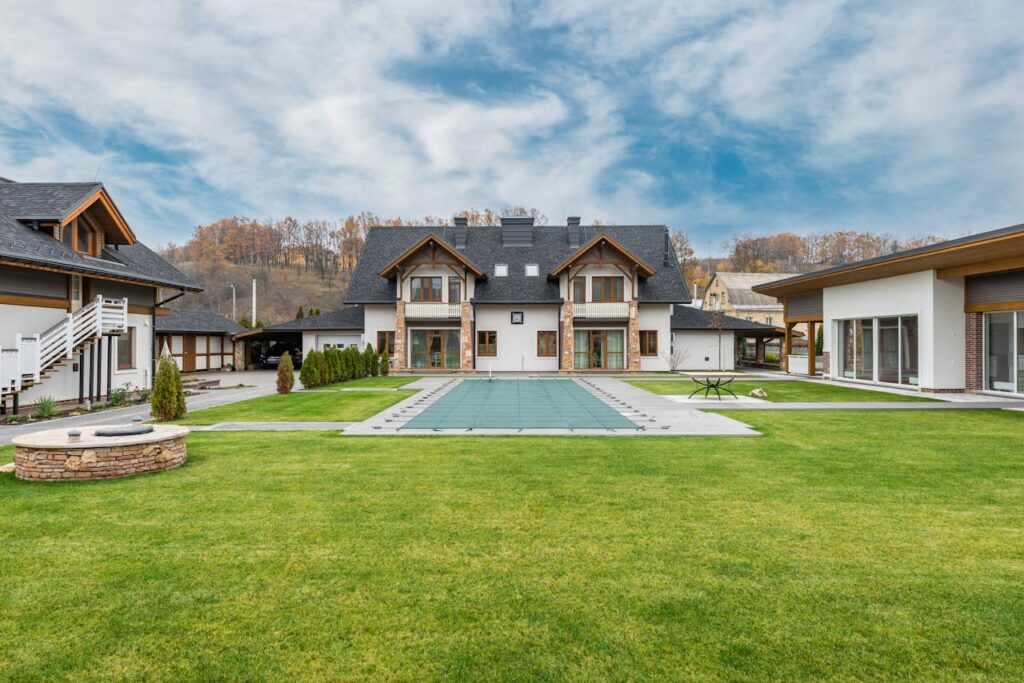
Family Botswana Safari is enabled by a range of comfortable accommodations which are discussed below under the following subheadings:
Luxury Lodges
For families who want a hassle-free experience, Botswana’s luxury lodges offer comfort, and guided family game drives. Many lodges provide family tents or adjoining rooms for convenience.
Sanctuary Chief’s Camp (Okavango Delta)
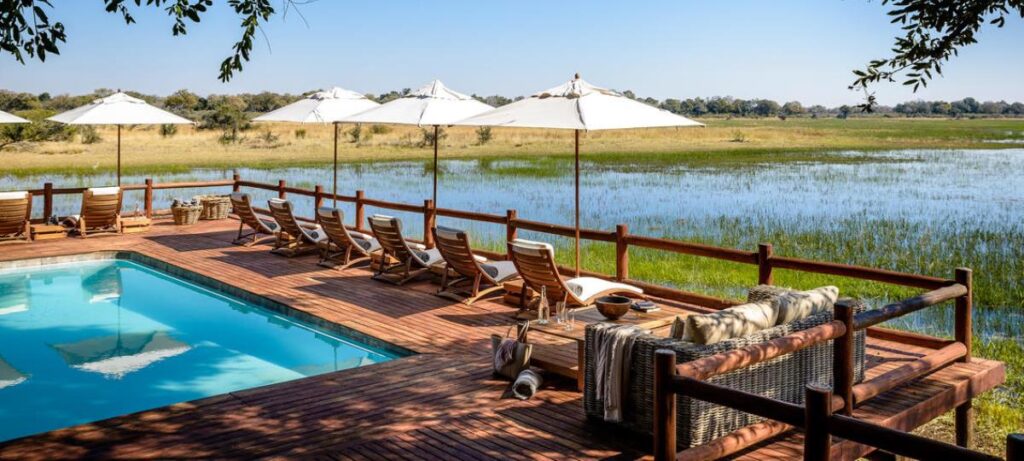
Offers spacious family suites, tailored activities for children, and excellent wildlife viewing opportunities. Along with specially tailored programs for kids, the lodge provides a variety of thrilling activities like game drives, mokoro excursions, and nature walks. This lodge provides opulent accommodations where guests can enjoy mouthwatering culinary options, and value great service.
Chobe Game Lodge (Chobe National Park)
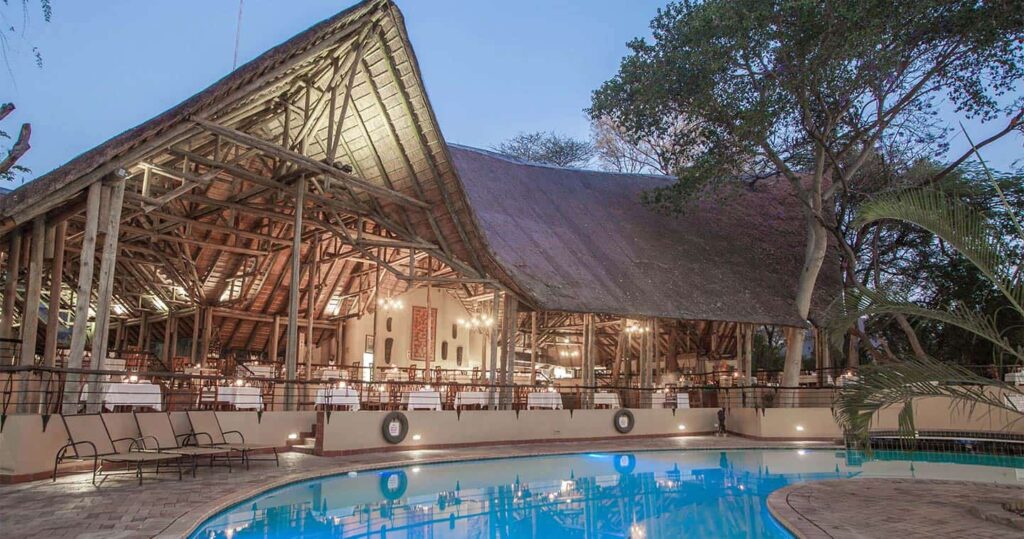
This lodge offers interconnecting family rooms, eco-friendly facilities, and a swimming pool. It delivers a wonderful safari experience for the whole family, given the lodge’s kid-friendly amenities. Visitors may be confident that they will enjoy an outstanding family holiday at this lodge because of the welcoming accommodations, delectable eating options, and attentive service. Everyone gets to take part in family-friendly activities including game drives, boat safaris, and birding walks.
Kwando Safaris (Moremi and Kwando River)
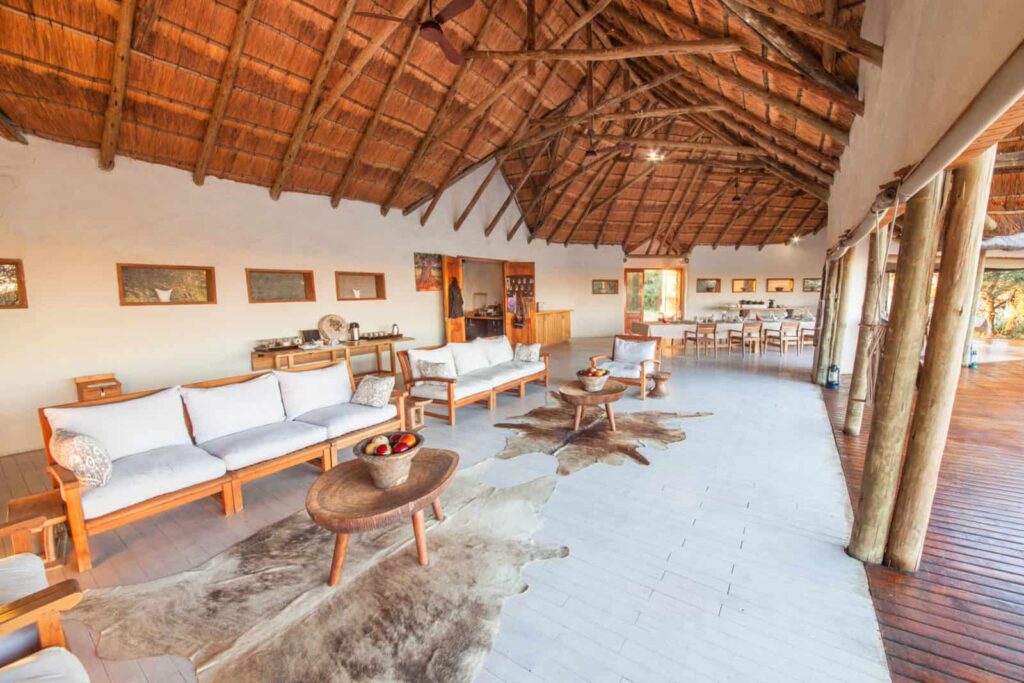
Known Visitors may be confident that they will enjoy an outstanding family holiday at this lodge because of the welcoming accommodations, delectable eating options, and attentive service. For their family-oriented safaris, Kwando offers specialized guides and trackers who are excellent with children. Here, there is ample wildlife for the kids to enjoy. Childminders are available during adult activities and dining, at an additional cost though.
Mobile Tented Camps
Mobile camps offer a unique way to explore the wilderness, with the added thrill of sleeping under canvas in the wild. These camps are often set up in remote areas and move according to wildlife migration patterns. Mobile tented camps can be arranged with companies which offer mostly family safari accommodations.
At these mobile tented camps, guests stay in traditional safari tents furnished with double beds, storage chests and private toilet facilities. Each tent has a terrace complete with chairs overlooking the grounds surrounding the intimate camp. They have soft furnishings and other beautiful furniture inspired by nature around the camps.
Self-Catering Lodges
For families on a budget, self-catering lodges offer flexibility and affordability. Many of these lodges have kitchen facilities, allowing families to prepare meals together.
- Planet Baobab (Makgadikgadi Pans): This quirky, affordable lodge offers self-catering options, a swimming pool, and activities like bush walks in the form of cultural excursions where the kids can learn about the ancient heritage of the San people. There is also the toasting marshmallows around the communal campfire and gazing at the stars are some more child-friendly activities on offer.
- Meno A Kwena (Makgadikgadi and Nxai Pans): Offers tented rooms overlooking the Boteti River with self-catering options and fantastic wildlife views with non-stop safari action. This charmingly authentic safari camp overlooks the Boteti River from its rocky perch. It’s a Natural Selection camp and so the emphasis is on classic-style safari without the superfluous extras offered by many in its league.
Wildlife to Expect on a Botswana Safari
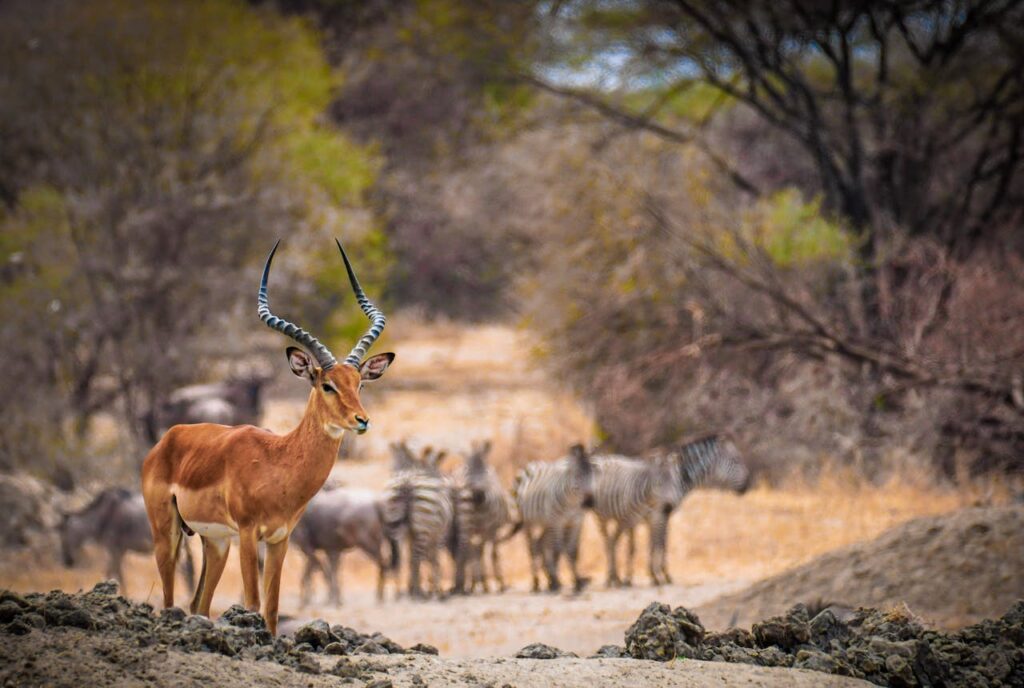
Botswana is a wildlife-rich country with a chance to encounter some of Africa’s most iconic animals during a Family Botswana Safari. Here’s a look at what families can expect to see:
Big Five Animals
While Botswana is famous for elephants, the other Big Five animals – lion, leopard, buffalo, and rhino – are also present, particularly in Chobe National Park and the Okavango Delta.
Unique Species: Botswana offers some unique sightings, such as:
- African Wild Dogs: Found in Moremi and Chobe, African wild dogs are among the rarest predators in Africa.
- Meerkats: The Makgadikgadi Pans are famous for friendly meerkat colonies, providing families with an opportunity to see these entertaining creatures up close.
- Kalahari Black-Maned Lions: The Central Kalahari is known for its distinctive black-maned lions, an impressive sight against the desert landscape.
Birdlife: Bird enthusiasts will be delighted with Botswana’s diverse avian life. The Okavango Delta alone has over 400 bird species, including Pel’s fishing owl, African fish eagle, and various kingfishers and herons.
Budgeting for a Family Safari in Botswana
Botswana wildlife adventure comes in varied prices, depending on factors such as season, accommodation type, and length of stay. The estimated costs are as follows:
- Luxury Safari Lodges: These can range from $800 to $2,000 per person per night, inclusive of meals, guided activities, and transfers.
- Mid-Range Lodges and Camps: Mid-range options typically cost between $300 and $700 per person per night.
- Self-Drive Safari with Camping: A more budget-friendly option, self-drive safaris allow families to camp in designated areas. Costs can range from $150 to $300 per night, depending on the facilities and park fees.
Additional Costs for a family Botswana safari would include:
- Park Entry Fees: Botswana has daily fees for national parks, generally around $30 for adults and $15 for children.
- Internal Flights: Many safari camps are accessible by light aircraft, which can add between $200 and $500 per person per flight.
- Optional Activities: Certain activities, like boat safaris, mokoro trips, and guided bushwalks, may incur additional charges.
To estimate your overall travel budget, add your flight prices to the price of your safari. Then add your expenses for visas, vaccinations, travel insurance, and other extra expenses. Other expenses include optional activities, pre- and post-safari accommodation, certain meals, alcoholic drinks, and tips.
RECOMMENDED: Ultimate Guide on How to Save Money for an African Safari Trip
Safety Tips for a Family Botswana Safari
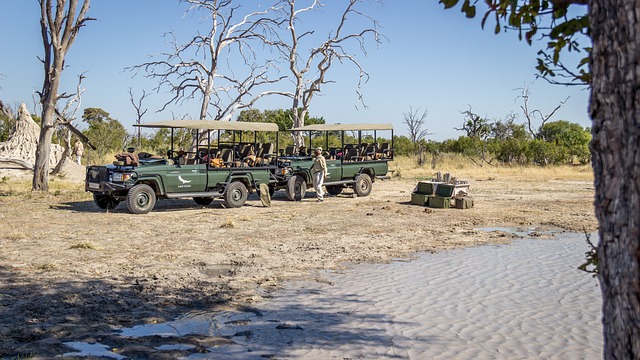
- Wildlife Safety: You must adhere to your guide’s instructions and use a safe vehicle. Consider hiring a private safari vehicle for game drives. These 4WD vehicles will be driven by a professional guide from your camp or lodge who will be able to explain the secrets of the bush to your family in an intimate and personal way. Not only will you be able to set your drive times around your child’s schedule, but the excursion can be tailored to suit your child’s age and needs.
- Anti-Malarial Medication: Botswana is not a malaria-free destination, especially areas around the Okavango Delta. The visitor should therefore consult their healthcare practitioner about preventative measures to avoid getting malaria.
- First Aid Kit: A compact kit with essentials like bandages, antiseptics, and insect repellent is a must. Handy for on-the-go cleanliness, especially for younger children.
- Go for childminders: Many camps and lodges are unfenced, meaning that there are no boundaries between the camp and the resident wildlife. You should never leave your child unsupervised in this environment. Many camps and lodges offer child-minding services. Let this inform your booking. Meanwhile, ensure that your children are mature enough to be able to deal with predator-prey interaction. Oftentimes an animal kill can be distressing for young children.
RECOMMENDED: Cons and Risks of an African Safari: Things to Know
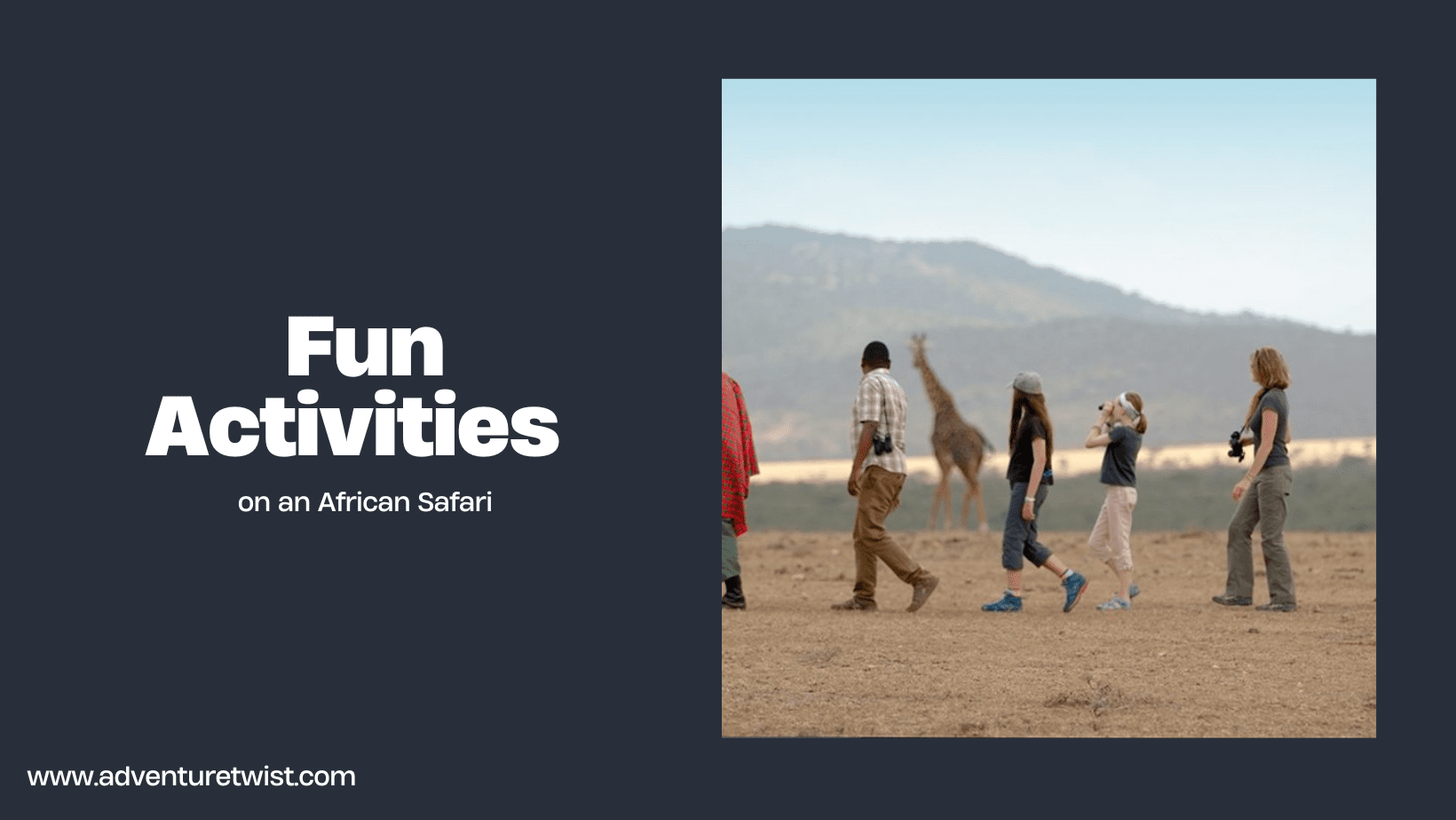
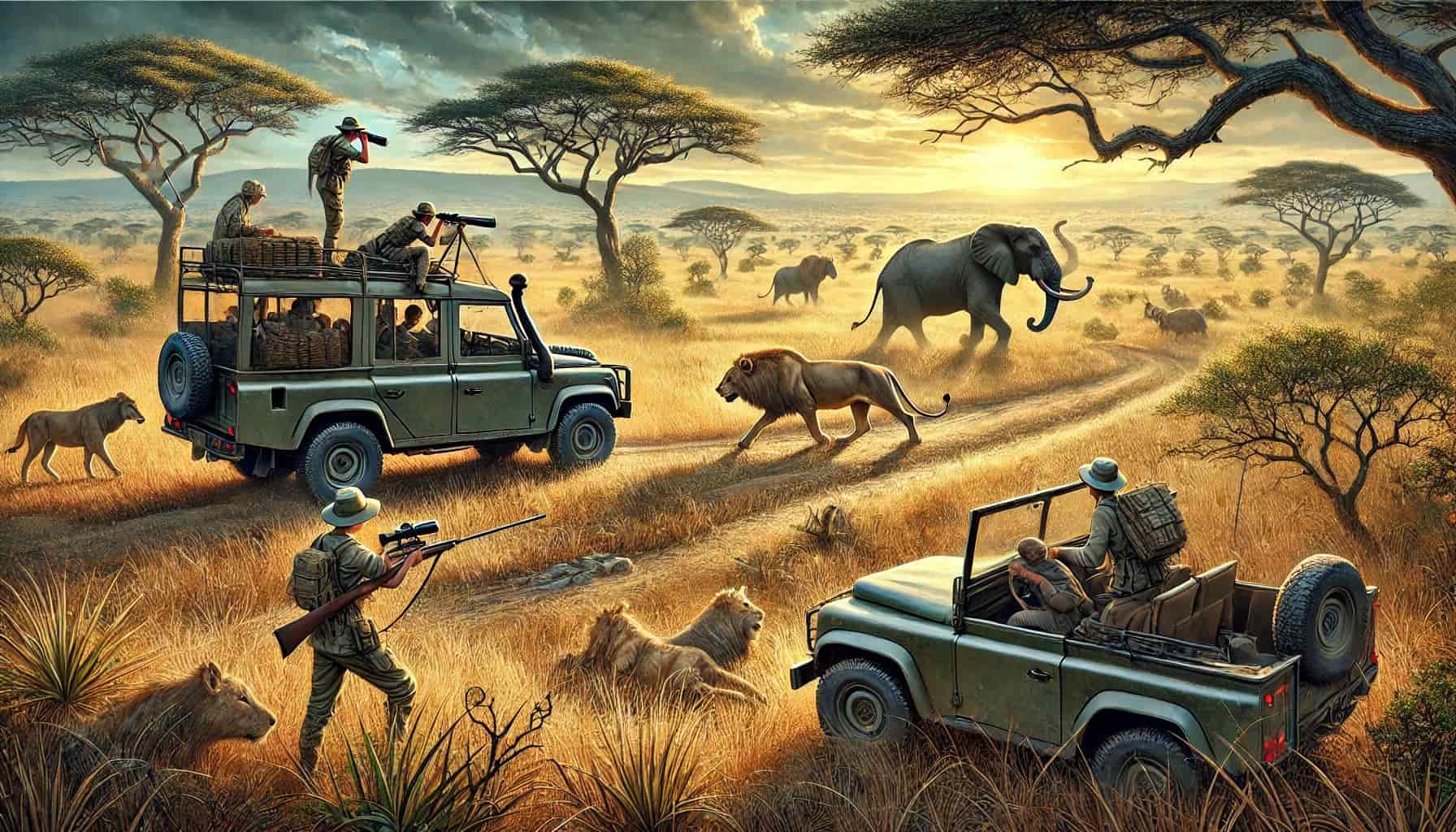
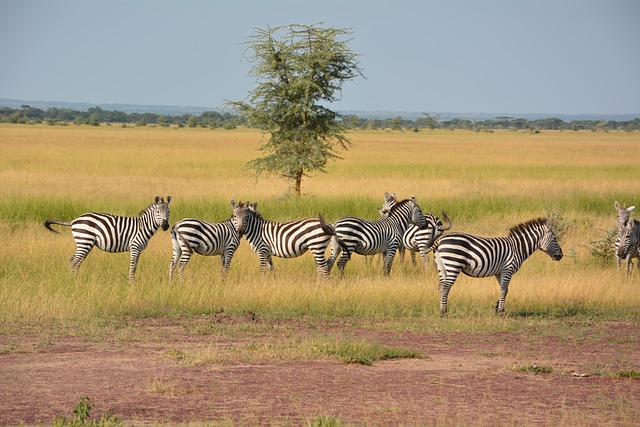
0 Comments